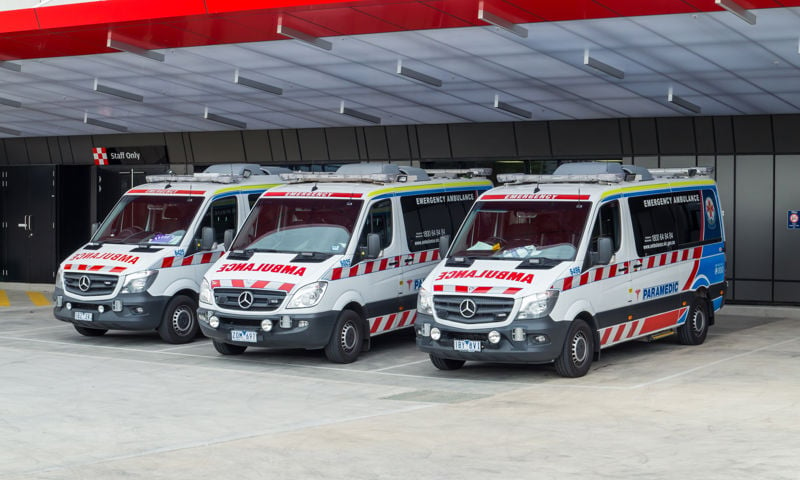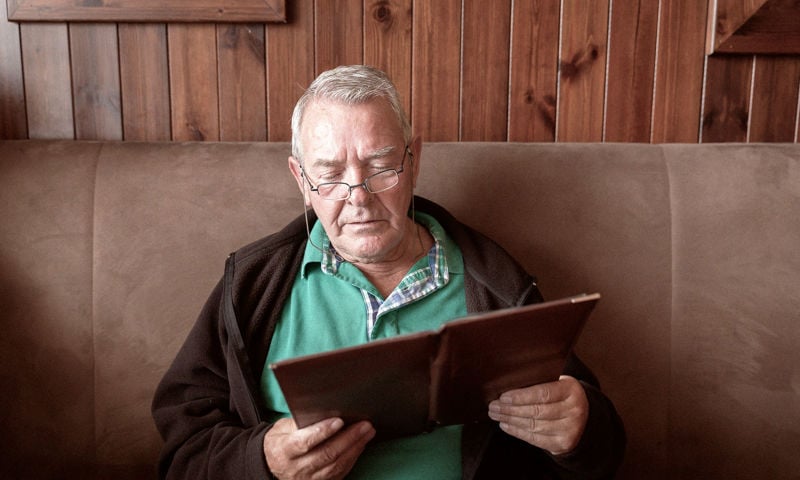Published 13 Sept 2022
What would you do in a health emergency? If you don’t think you need 000, what are your options? How sick is ‘urgent’ and when do you need to go to hospital, or seek help from a GP or pharmacist? In an ever-changing pandemic landscape knowing what to do can be confusing but we’re here to help.
Learn ahead of time the best way to get help, so you’re prepared if the situation arises.
Do I need an ambulance?
Accidents and medical concerns happen, but not all of them require ambulance transport to the hospital. It can be hard navigating when you should call 000, when to get someone to drive you to the emergency department or when to visit the doctor.
You should call triple zero (000) for a health emergency if someone is seriously injured or needs urgent medical help. Here is a helpful list of what is considered a medical emergency - call for the following:
- Chest pain or chest tightness
- sudden onset of weakness, numbness or paralysis of the face, arm or leg
- breathing difficulties
- unconsciousness
- uncontrollable bleeding
- a sudden collapse or unexplained fall
- unexplained fitting in adults
- injury from a major car accident
- a fall from a great height
- serious assault, including stabbing or shooting
- severe burns, particularly in young children
- infants who are fitting or have an ongoing fever
If you need an interpreter or need additional assistance, make sure you tell the operator at the beginning of your call. Visit the Better Health website for more information on what happens when you call 000.
When should I go to the emergency department?
An emergency department provides around the clock urgent medical care. You should go to emergency if you have a severe injury or illness.
Not calling 000 or seeking other medical care when it’s not an emergency avoids putting strain on our health system and can help save other people’s lives.
Alternatives to going to the Emergency Department
- Calling an after-hours doctor for a home or telehealth consultation
- Calling Nurse-on-Call 1800 022 222 for advice from a registered nurse, they will facilitate a 000 call if they believe it’s an emergency
- Visiting a local walk-in clinic that triages patients
- Consulting your pharmacist for non-emergency concerns like coughs and colds
- Seeking mental health support from services like Beyond Blue
Know the details of your health cover
Making decisions and retaining information is almost impossible in a stressful situation. That's why we recommend you know what you’re covered for and have a known plan for medical emergencies. If the time comes, it’s one less thing you’ll need to think about.
Am I covered for ambulance trips?
In Australia, ambulance trips are not covered by Medicare and ambulance cover varies state to state. Please make sure you’re aware of how ambulance works where you live. We strongly recommend all Victorians have an Ambulance Victoria membership.
For GMHBA members, Ambulance subscription is covered under some extras policies, and emergency transport under some hospital policies. For specific information regarding your coverage please check your fact sheet in your member area.
Public versus private emergency departments
If you are taken to hospital in an ambulance or need urgent medical assistance, the priority is getting you the medical help you need in the shortest amount of time. It’s unlikely you’ll be able to choose which hospital you are taken to, and often you’ll be admitted to a public hospital as a public patient. Your treatment will be covered under Medicare, and you will not need to use your private health insurance.
If you are taking yourself to the emergency department and have eligible hospital cover, you can choose a private emergency department if there is one available, however there are things you need to consider before making this decision.
Private hospital emergency department
Many participating private hospitals have emergency departments. For members with eligible hospital cover, you may wish to be admitted to a private hospital as a private patient. Positives of this may be:
- Shorter wait times to be seen
- You can request your own specialist
- You may be eligible for comforts such as a private room
You may incur out of pockets such as hospital excess and emergency department fees that are not covered on your hospital cover, and for any tests or scans administered if you are not admitted into hospital.
To avoid the surprise of any unexpected costs, we recommend becoming familiar with your cover and how private emergency department fees work before finding yourself in a situation where you need help.
Using your private cover in a public hospital
You have the option to be admitted to a public hospital as an eligible private patient (paid for by GMHBA). If you’re admitted privately there may be out of pocket costs, we recommend contacting us before opting to be treated privately in a public hospital; to avoid these costs simply request to be treated as a public patient.
Don’t delay your care
While we don’t want to put unnecessary pressure on our hospitals, we also want to ensure people are receiving the right care at the right time. If in doubt, contact alternative medical support and if an emergency, always contact Triple Zero (000).



